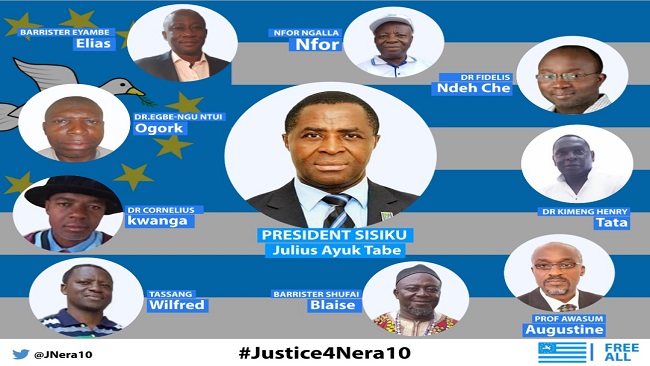Southern Cameroons Crisis: Separationists Aim To End Marginalization
The conflict in Cameroon is increasingly escalating in a dangerous manner. Cameroon, a country in Central Africa, experiences politically motivated conflict driving devastating effects on families. Cameroon is an official bilingual-speaking country, with French and English as official languages. Throughout the recent months, the latest conflict with the political-driven war were incidents involving explosive devices and unauthorized killings of civilians. According to the news outlet Al Jazeera, the conflict is creating a drastic humanitarian crisis displacing more than 700,000 civilians and driving 63,800 civilians to flee across the border to Nigeria for safety.
The constant escalation of the crisis in Cameroon is gravely affecting the civilians. According to Al Jazeera, it is estimated that approximately 4000 civilians have been killed in the Anglophone regions. Additionally, the international crisis group has stated that due to the crisis, most schools have been closed for two years now and more than 170 villages have been destroyed. There are efforts to support the innocent Cameroonian civilians, including relief plans for support. The Humanitarian Response Plan (HRP) is working to provide assistance. According to the United Nations Office for the Coordination of Humanitarian Affairs, HRP is working on its plan to provide 386 million USD in order to assist 3.4 million Cameroonians in need.
In order to de-escalate this conflict, Cameroon was supported by its key partners, including France, the United States (U.S.), the United Kingdom (U.K.), and Germany. For a period of time, Germany assisted Cameroon with their conflict by providing military aid, though later decided to end their assistance. Similarly, the U.S. has played a significant role in aiding Cameroon’s crisis, though is scaling back their military service on account of human rights violations by the Cameroon military. Following these efforts, the U.S., U.K., and France publicly expressed their concern regarding the conflict and the restrictions of basic rights and freedoms for Cameroonian civilians. Given the military assistance and international pressure for peace, the Cameroon government should put an end to the conflict and aim to unite the country.
The conflict began in late 2016 between anglophone citizens and the francophone government. Cameroon is run by 86 year old francophone President Paul Biya, who has been in office since 1982. Since Biya’s rise as president, the francophone government has continued to suppress the southern anglophone part of Cameroon. In October of 2016, anglophone teachers and lawyers began peaceful protests to regain unity among Cameroon and end the marginalization of anglophone civilians. Initially, the Cameroon government reacted to this protest by creating stricter regulations, though in time violence broke out. In November of 2017, the francophone president of Cameroon officially declared war on the anglophone region, the politically separated division of Cameroon. Originally, the attacks between the anglophone separatists and the francophone government began in Manyu, a division of the southwest region of Cameroon, then escalated to neighboring regions.
The politically driven conflict in Cameroon will continue to escalate, harming civilians. In order to create peace between the anglophone separationists and the Cameroon government, a political solution must be found that satisfies both parties. Specifically, an agreement that provides the southern anglophone division of Cameroon with equal rights and humanitarian needs, providing both parties with autonomy. This crisis between the English-speaking region and the French government was politically fuelled and military force was unnecessarily used. The anglophone region has been marginalized for many decades, and President Biya must use his power to unite Cameroon as one.
Source: The Organization For World Peace





